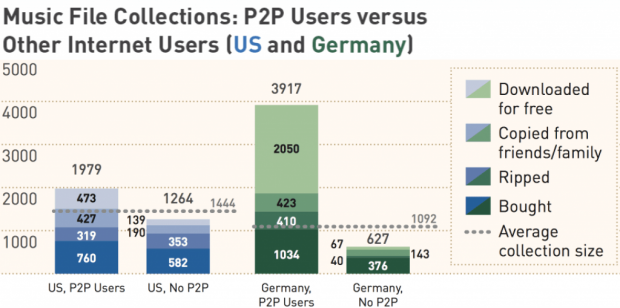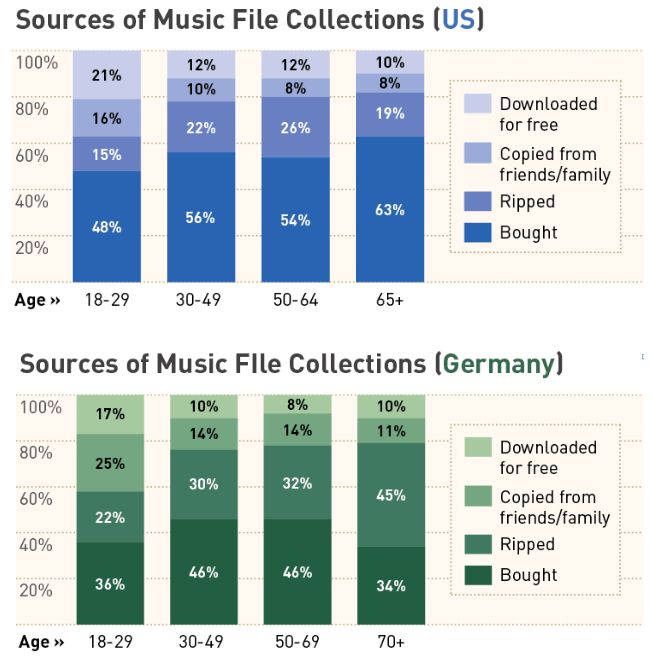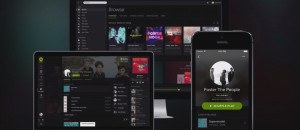While downloading one song may not feel that serious of a crime, the accumulative impact of millions of songs downloaded illegally – and without any compensation to all the people who helped to create that song and bring it to fans – is devastating.
The above quote is from the Recording Industry Association of America (RIAA — an industry group), who claims the music industry has lost billions of dollars over the past decade due to illegal sharing and downloading of songs. Unfortunately for the RIAA, a recent study by the American Assembly of Columbia University shows people that illegally download or share music actually purchase more songs than people who don’t.
According to the study, which was conducted through phone interviews of consumers in the United States and Germany, people in the United States who take part in P2P (aka downloading music via online file sharing, such as torrents) purchase 30% more music than people who don’t P2P; the gap in Germany is even greater:
US P2P users have larger collections than non-P2P users (roughly 37% more). And predictably, most of the difference comes from higher levels of ‘downloading for free’ and ‘copying from friends/family’.
But some of it also comes from significantly higher legal purchases of digital music than their non-P2P using peers–around 30% higher among US P2P users. Our data is quite clear on this point and lines up with numerous other studies: The biggest music pirates are also the biggest spenders on recorded music.
The last phrase in the above quote is something the RIAA would be wise remember — the biggest music pirates are also the biggest spenders on recorded music.
Aside from the tidbit mentioned above, the study by the American Assembly also revealed that offline sharing of songs (e.g. copying songs from CDs and passing them off to friends or family) is more prevalent than online file sharing of songs — especially among the older generations:
It isn’t entirely clear why pirates are more likely to purchase music than non-pirates. One theory is people who pirate music are more music enthusiasts than people who don’t; grabbing music via file sharing is the quickest way for them to “sample” songs before shelling out money for them. If this is indeed the case, it is hard to imagine that this trend would hold true for TV shows and movies — because movies and TV shows don’t have as much repeat value as music — but you never know.
[via American Assembly, TorrentFreak]

 Email article
Email article





